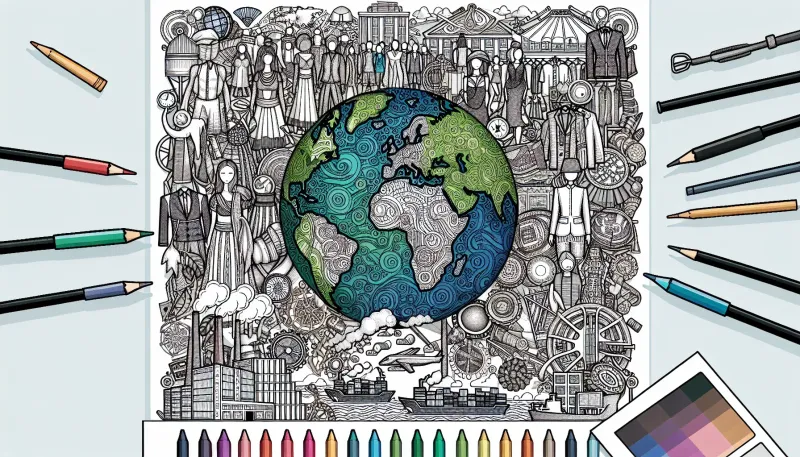The Impact of Fashion Industry Globalization: Trends and Insights

Discover the profound impact of fashion industry globalization, exploring trends, insights, and the ways in which this phenomenon is reshaping the global fashion landscape.
The fashion industry is a global powerhouse, known for its relentless pace and its ability to influence cultures and economies worldwide. The globalization of the fashion industry has brought significant changes and trends that are reshaping how fashion brands operate, how consumers interact with fashion, and ultimately, how fashion affects the world.
Understanding Fashion Industry Globalization
Globalization in the fashion industry refers to the process by which fashion brands expand their reach and influence beyond their domestic borders, integrating and connecting with markets around the world. This phenomenon is driven by various factors including advancements in technology, shifts in consumer behavior, and the removal of trade barriers.
Key Trends in Fashion Industry Globalization
1. The Rise of Fast Fashion
Fast fashion has become a dominant force in the globalization of the fashion industry. Brands like Zara, H&M, and Uniqlo have revolutionized how clothes are manufactured, consumed, and discarded. Fast fashion is characterized by rapid production cycles, trend replication, and affordable prices. These qualities make it accessible to a global audience, but also raise concerns about sustainability and ethics.
2. E-commerce and Digital Transformation
The advent of e-commerce has dramatically altered the fashion landscape. Online platforms have made it easier for fashion brands to penetrate international markets without the need for extensive physical infrastructure. Companies like ASOS, Farfetch, and Amazon Fashion are leveraging robust e-commerce strategies to reach a diverse and global customer base.
3. Localization and Cultural Sensitivity
While fashion is becoming more globalized, brands are increasingly aware of the importance of localization. This means adapting products and marketing strategies to fit the cultural contexts of different regions. For instance, fashion brands entering the Middle Eastern market might consider local dress codes, whereas in Asia, they might focus more on digital marketing channels like WeChat.
4. Sustainable and Ethical Fashion
Globalization has led to a more conscientious consumer base that demands transparency and ethical practices from fashion brands. Issues such as fair labor conditions, sustainable materials, and carbon footprints are now critical considerations. Brands are responding by adopting sustainable practices and certifying their supply chains to gain trust from informed consumers.
The Economic Impact of Globalization on the Fashion Industry
The globalization of the fashion industry has substantial economic implications. It has created job opportunities in developing countries, where labor is more affordable. However, this economic boom comes with challenges such as labor exploitation and economic dependency. Developed countries, on the other hand, benefit from increased profitability and market diversification.
Challenges and Solutions in Fashion Industry Globalization
1. Supply Chain Complexity
Global supply chains can be incredibly complex, involving multiple countries and layers of management. This complexity can lead to inefficiencies and increased risks such as delays and quality control issues. Solutions include adopting advanced supply chain management technologies and fostering more transparent supplier relationships.
2. Ethical Concerns
Ethical issues, including worker exploitation and environmental degradation, are significant challenges in the global fashion industry. Many brands are now investing in ethical audits and certifications to ensure their supply chains are humane and sustainable. Initiatives like the Fair Trade certification and the use of blockchain for transparency are gaining traction.
3. Trade Policies and Tariffs
International trade policies and tariffs can pose barriers to globalization efforts. Fashion brands must navigate these complexities by staying informed about trade agreements and employing strategic sourcing to mitigate cost implications.
Conclusion
Globalization has profoundly impacted the fashion industry, bringing both opportunities and challenges. From the rise of fast fashion to the ethical and economic considerations, the industry's global footprint is undeniable. Brands that succeed in this landscape are those that can balance global reach with local relevance, sustainability, and ethical practices. As the world becomes increasingly interconnected, the fashion industry's globalization will continue to evolve, shaping the future of fashion in unexpected and exciting ways.



























